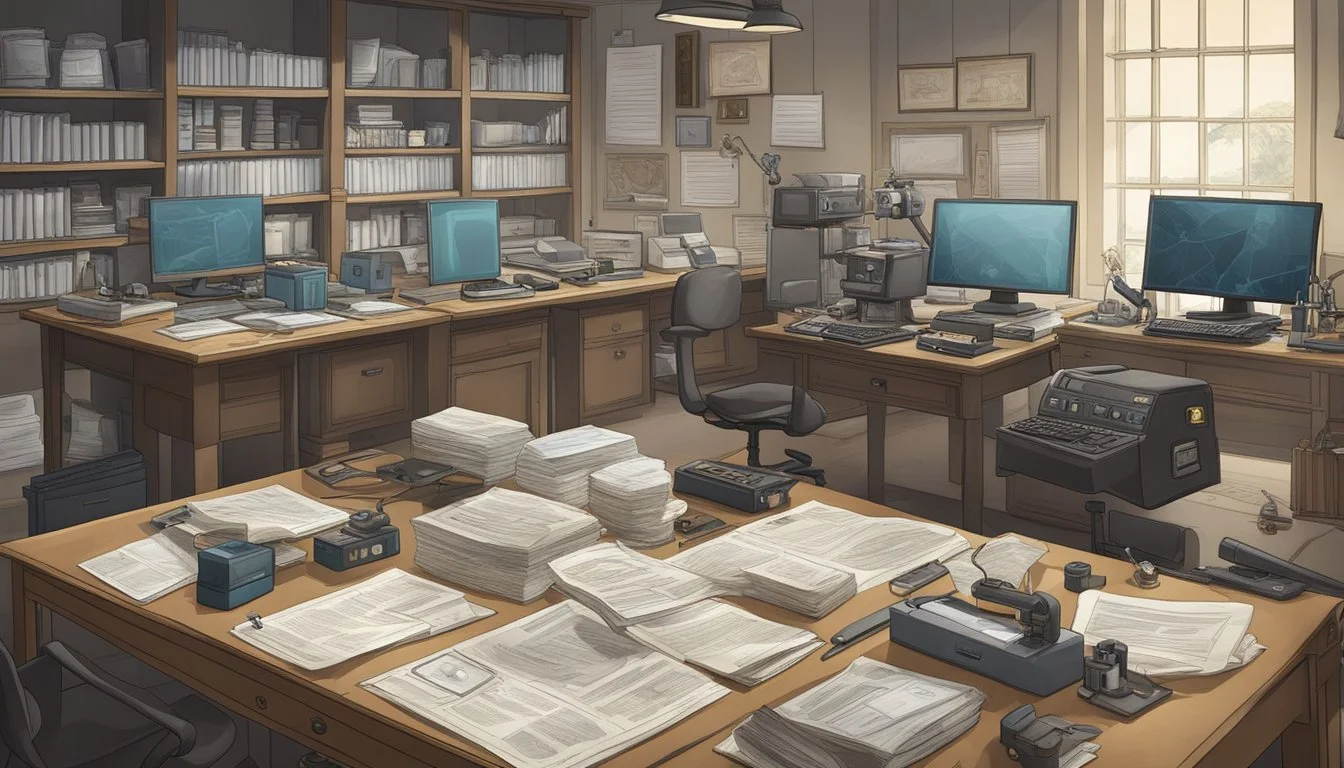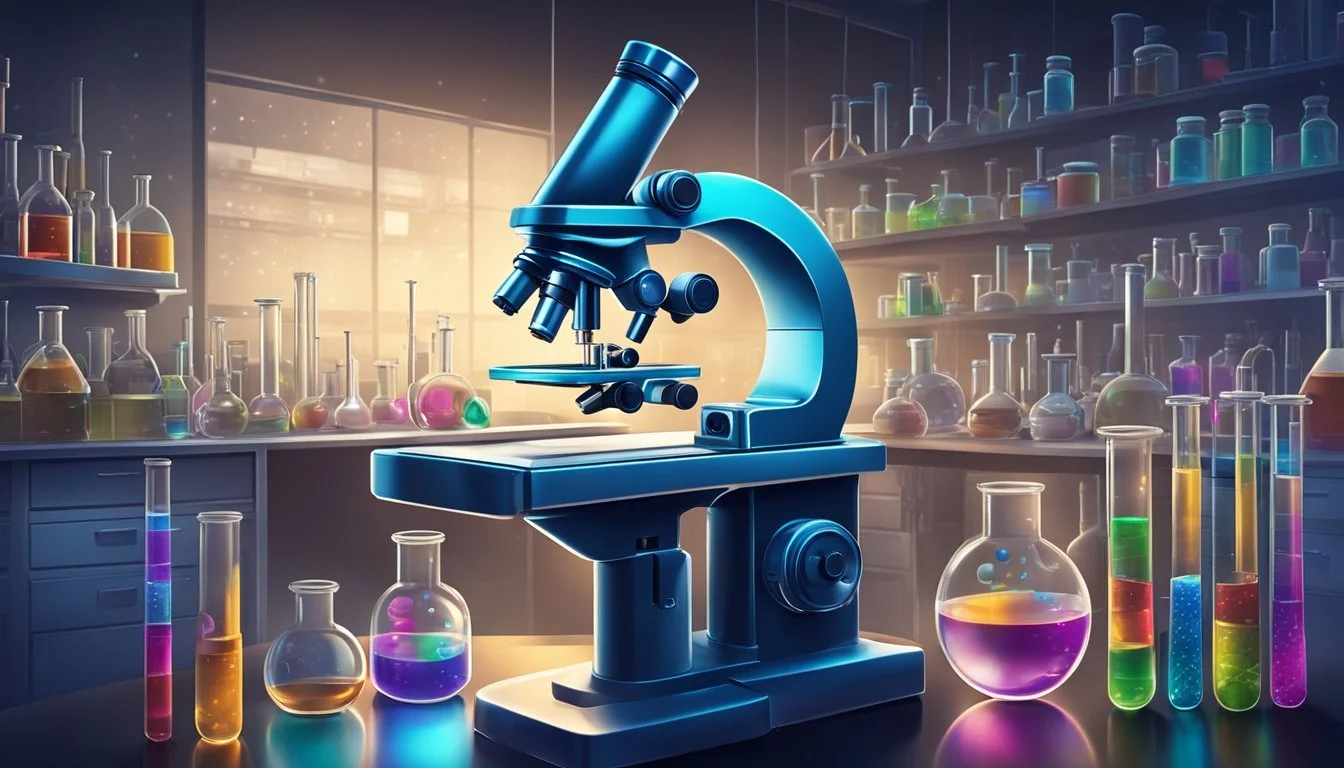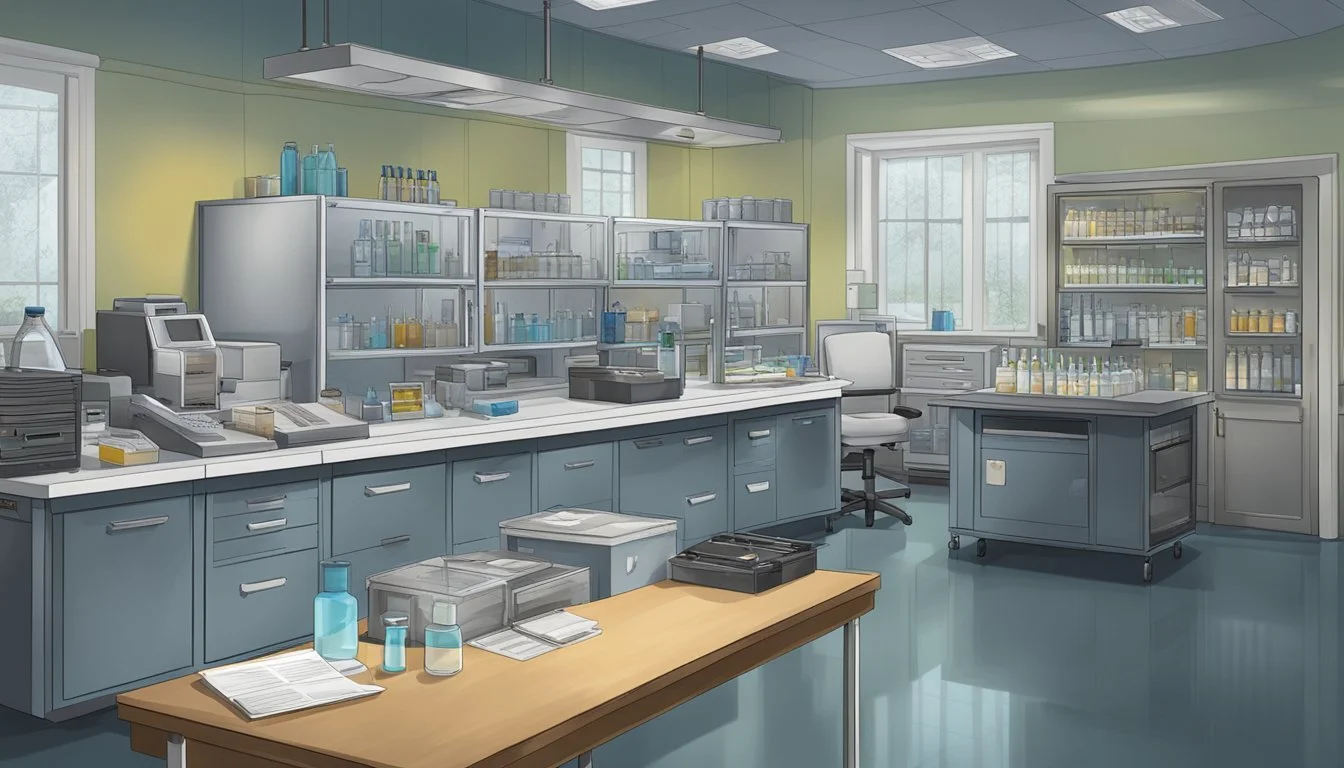10 Compelling Documentaries on Historical Cold Cases Solved by DNA Technology
Breakthroughs in Forensic Science
True crime documentaries have captivated audiences for decades, shedding light on unsolved mysteries and cold cases. Recent advancements in DNA technology have revolutionized criminal investigations, allowing law enforcement to crack cases that had long gone cold. This has led to a surge in compelling documentary series exploring historical crimes solved through genetic evidence.
These documentaries offer viewers a fascinating look at how cutting-edge science is bringing closure to victims' families and justice to perpetrators, sometimes decades after the crimes were committed. From brutal murders to baffling disappearances, the cases featured span a wide range of criminal activities. By combining traditional investigative techniques with modern DNA analysis, filmmakers are able to present riveting narratives that showcase the power of scientific progress in the pursuit of truth.
1) The Confession Tapes: Tracing DNA Evidence
"The Confession Tapes" is a Netflix documentary series that examines cases where convicted individuals claim their confessions were coerced or false. The show, which premiered in 2017, has two seasons exploring different cases.
Each episode focuses on a specific case, providing detailed insights into the legal processes involved. While the series primarily centers on disputed confessions, it also highlights the role of DNA evidence in solving cold cases.
DNA technology plays a crucial part in many episodes, often revealing new information that challenges or confirms initial convictions. The series demonstrates how advancements in genetic analysis have revolutionized cold case investigations.
By revisiting these cases with modern forensic techniques, "The Confession Tapes" illustrates the power of DNA evidence in uncovering the truth. It showcases instances where genetic data has exonerated wrongfully convicted individuals or identified the actual perpetrators of crimes.
The documentary serves as a compelling exploration of the intersection between confession-based convictions and scientific evidence. It underscores the importance of thorough investigation and the potential for DNA technology to resolve long-standing mysteries in criminal cases.
2) Cold Case Files: The Deliberate DNA Discovery
Cold Case Files: DNA Speaks is a groundbreaking documentary series that explores unsolved murder cases cracked through DNA evidence. The show premiered in 2023, featuring 10 episodes dedicated to long-dormant investigations.
Each episode delves into a different cold case, showcasing the relentless efforts of investigators and the pain endured by victims' families. The series highlights how advancements in DNA technology have revolutionized forensic science.
Viewers gain insight into the meticulous process of collecting and analyzing genetic evidence. The show demonstrates how even decades-old DNA samples can now yield crucial information, leading to breakthroughs in seemingly hopeless cases.
Cold Case Files: DNA Speaks not only focuses on the scientific aspects but also emphasizes the human element. It portrays the emotional journey of those affected by these crimes and the relief that comes with resolution.
The series serves as a testament to the power of perseverance in law enforcement and the importance of technological progress in solving crimes. It offers a compelling look at how justice can be served, even after many years have passed.
3) The Genetic Detective by ABC News
ABC News produced "The Genetic Detective," a documentary series featuring investigative genetic genealogist CeCe Moore. The show premiered in May 2020 and showcased Moore's work using genetic genealogy to solve cold cases.
Each episode follows Moore as she collaborates with law enforcement agencies to identify suspects in unsolved crimes. She employs her unique research skills and DNA analysis techniques to trace family trees and narrow down potential perpetrators.
The series highlights several successful investigations, including the resolution of a 1998 cold case involving the murders of Sherri and Megan Scherer. Moore's expertise in genetic genealogy played a crucial role in cracking this long-standing mystery.
"The Genetic Detective" demonstrates the power of combining traditional detective work with cutting-edge DNA technology. It illustrates how advances in genetic science have revolutionized crime-solving methods, particularly for cases that have remained unsolved for decades.
The show provides viewers with insights into the complex process of genetic genealogy and its applications in forensic science. It also raises awareness about the potential of this technology to bring closure to victims' families and ensure justice is served.
4) DNA Solves the Crime - Netflix Special
"DNA Solves the Crime" is a captivating Netflix documentary that explores how advanced genetic testing has cracked long-unsolved cases. The series examines multiple cold cases where DNA evidence played a crucial role in identifying perpetrators.
Each episode focuses on a different case, detailing the original investigation and its challenges. Viewers learn about the breakthroughs in DNA technology that allowed investigators to revisit these cases decades later.
The show features interviews with detectives, forensic experts, and family members of victims. It provides insight into the emotional impact of unsolved crimes and the relief brought by DNA-driven resolutions.
One notable case covered in the series involves a 1980s murder solved through genetic genealogy. This technique allowed investigators to trace the killer's family tree using DNA databases, leading to an arrest after 30 years.
The documentary also highlights the ethical considerations surrounding DNA use in criminal investigations. It addresses concerns about privacy and the potential for misuse of genetic information.
5) A Crime to Remember: The DNA Breakthrough
"A Crime to Remember" explores the case of Nadine Madger, a 25-year-old woman from Willoughby, Ohio. In January 1980, Madger was found brutally stabbed over 40 times in her home, with her infant son present in the room.
For decades, the case remained unsolved despite the presence of blood evidence believed to belong to the killer on the victim's clothing. The mystery surrounding Madger's murder haunted the local community and law enforcement for years.
In a groundbreaking development, investigators revisited the case using advanced DNA technology. This new approach allowed them to analyze the preserved blood evidence with unprecedented precision.
The documentary details the painstaking process of extracting usable DNA from decades-old samples and comparing it to genetic databases. This cutting-edge technique ultimately led to the identification of Madger's killer.
"A Crime to Remember" not only recounts the tragic events of 1980 but also highlights the relentless pursuit of justice by dedicated law enforcement professionals. It showcases how technological advancements can breathe new life into cold cases and provide closure for victims' families.
6) Forensic Files: The DNA Dossier
Forensic Files: The DNA Dossier showcases groundbreaking cases where DNA evidence played a crucial role in solving long-standing mysteries. This documentary series highlights the power of genetic analysis in cracking cold cases that had baffled investigators for years.
Each episode focuses on a different case, detailing the initial investigation, the challenges faced by law enforcement, and the eventual breakthrough enabled by DNA technology. The series explores a range of crimes, from decades-old murders to serial offenses that spanned multiple jurisdictions.
Forensic Files: The DNA Dossier provides viewers with a deep dive into the scientific methods used to extract and analyze genetic material from crime scenes. It explains how advancements in DNA profiling have revolutionized forensic science and criminal investigations.
The documentary features interviews with detectives, forensic experts, and family members of victims. These firsthand accounts offer unique perspectives on the impact of unsolved cases and the relief brought by DNA-driven resolutions.
Through compelling storytelling and expert insights, Forensic Files: The DNA Dossier demonstrates how genetic evidence has become an invaluable tool in the pursuit of justice. It underscores the importance of preserving evidence and the potential for future technological advancements to solve even more cold cases.
7) Unsolved Mysteries: The DNA Revelation
The long-running television series "Unsolved Mysteries" has captivated audiences with its intriguing cold cases for decades. The show's impact extends beyond entertainment, as it claims to have helped solve hundreds of cold cases over the years.
DNA technology has played a crucial role in cracking many of these mysteries. The series has featured numerous cases where genetic evidence provided the breakthrough investigators needed to identify perpetrators and bring closure to victims' families.
One notable example is the 1956 murder of teenage sweethearts Lloyd Duane Bogle and Patricia Kalitzke. This case remained unsolved for over 60 years until DNA evidence finally identified the killer.
The show's format of presenting unsolved cases to a wide audience has proven effective in generating new leads. Viewers often provide crucial information that, when combined with DNA analysis, can lead to case resolutions.
"Unsolved Mysteries" continues to showcase the power of DNA technology in solving cold cases. It demonstrates how scientific advancements, combined with public engagement, can bring justice to long-forgotten crimes.
8) The Innocence Files: Justice with DNA
The Innocence Files is a powerful Netflix documentary series that explores cases of wrongful convictions overturned through DNA evidence. It highlights the work of the Innocence Project, a nonprofit organization dedicated to exonerating the wrongly convicted.
The nine-episode series is divided into three parts: The Evidence, The Witness, and The Prosecution. Each segment delves into different aspects of the criminal justice system that can lead to wrongful convictions.
The documentary showcases eight cases where innocent individuals were imprisoned for crimes they did not commit. Through advanced DNA testing techniques, these individuals were eventually exonerated and freed.
One notable case featured in the series is that of Levon Brooks and Kennedy Brewer from Mississippi. Both men were wrongly convicted of separate child murders in the 1990s. DNA evidence later proved their innocence and identified the real perpetrator.
The Innocence Files demonstrates the crucial role of DNA technology in correcting miscarriages of justice. It also exposes flaws in forensic practices, eyewitness testimonies, and prosecutorial misconduct that can lead to wrongful convictions.
9) Solving the Perfect Crime: The DNA Solution
This documentary explores how DNA technology revolutionized cold case investigations. It focuses on crimes once considered "perfect" due to lack of evidence or suspects.
The film highlights several cases that remained unsolved for decades until DNA analysis provided crucial breakthroughs. Viewers learn about the evolution of forensic techniques and their application to old evidence.
Interviews with investigators, forensic experts, and family members offer insights into the emotional impact of long-unsolved crimes. The documentary also examines the role of genetic genealogy databases in identifying suspects.
One featured case is the 1956 double murder of Lloyd Duane Bogle and Patricia Kalitzke. This crime went unsolved for over 60 years before DNA evidence finally identified the perpetrator.
The film demonstrates how persistence, technological advancements, and collaboration between law enforcement and scientists can bring closure to seemingly hopeless cases. It underscores the power of DNA evidence in achieving justice for victims and their families.
10) Cold Justice: DNA Edition
"Cold Justice: DNA Edition" is a gripping documentary series that sheds light on long-unsolved criminal cases. The show focuses on how advancements in DNA technology have revolutionized cold case investigations.
Each episode follows a team of experienced investigators and forensic experts as they reexamine old evidence using cutting-edge DNA analysis techniques. These dedicated professionals work tirelessly to bring closure to victims' families and justice to perpetrators who have evaded the law for years.
The series showcases the power of genetic genealogy and other innovative DNA methods in cracking cases that were once considered unsolvable. Viewers witness the painstaking process of collecting and analyzing DNA samples, often from decades-old crime scenes.
"Cold Justice: DNA Edition" not only highlights the scientific breakthroughs in forensic technology but also explores the emotional impact on those involved. It presents a balanced view of the investigative process, showcasing both successes and challenges faced by law enforcement agencies.
Through compelling storytelling and expert interviews, the series educates audiences about the complexities of cold case investigations and the vital role DNA evidence plays in modern criminal justice.
The Rise of DNA Technology
DNA technology revolutionized forensic science and criminal investigations. Its emergence as a powerful tool for solving cold cases marked a turning point in law enforcement capabilities.
Advancements in Genetic Sequencing
Genetic sequencing techniques rapidly evolved since the 1980s. Scientists developed more sensitive methods to analyze smaller and degraded DNA samples. Polymerase chain reaction (PCR) amplification allowed for the replication of minute DNA quantities.
Next-generation sequencing technologies emerged in the 2000s. These innovations enabled faster and more cost-effective analysis of entire genomes. Advanced bioinformatics tools improved the interpretation of complex genetic data.
Mitochondrial DNA analysis proved valuable for identifying remains. It allowed investigators to trace maternal lineages in cases with limited genetic material.
The Forensic Impact of DNA Profiling
DNA profiling transformed cold case investigations. It provided a means to definitively link suspects to crime scenes years or decades later. Law enforcement agencies began systematically reviewing unsolved cases with preserved DNA evidence.
The creation of DNA databases like CODIS enhanced investigative capabilities. These systems allowed for the comparison of DNA profiles across jurisdictions. Cold cases were solved through matches to convicted offenders or other crime scene samples.
Familial DNA searching expanded the reach of genetic evidence. This technique identified potential relatives of unknown perpetrators, leading to breakthroughs in stalled investigations.
Notable Cold Cases Solved
DNA technology has revolutionized cold case investigations, leading to breakthroughs in decades-old unsolved crimes. Advanced forensic techniques have brought closure to victims' families and justice to perpetrators who long evaded capture.
Case Studies in DNA Breakthroughs
The 1956 double homicide of Duane Bogle and Patricia Kalitzke in Montana remained unsolved for 65 years. In 2021, forensic genealogy identified Kenneth Gould as the perpetrator, making it the oldest American cold case solved using DNA evidence.
The Golden State Killer case shocked California in the 1970s and 1980s. Joseph James DeAngelo was arrested in 2018 after genetic genealogy linked crime scene DNA to his relatives. He was convicted of 13 murders and numerous rapes.
In 2014, the identity of Paulette Jaster, missing since 1979, was confirmed through DNA analysis of unidentified remains. Forensic anthropologist Sharon Derrick connected an internet tip to autopsy photos, solving the decades-old mystery.
Public Perception and Media Influence
True crime documentaries have significantly impacted public awareness of cold cases. "Making a Murderer" on Netflix highlighted Steven Avery's wrongful conviction and subsequent exoneration after 18 years in prison for sexual assault.
Media coverage often leads to renewed interest in cold cases, prompting tips from the public. This increased attention can pressure law enforcement to reexamine evidence using new technologies.
The rise of genetic genealogy databases has sparked privacy debates. While these tools have solved numerous cases, concerns about data security and consent remain contentious issues in the forensic community.







